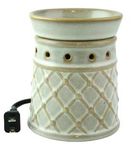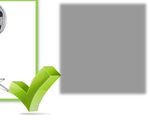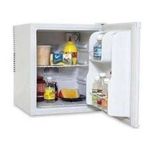Bedroom Allowable Appliances
←
→
Page content transcription
If your browser does not render page correctly, please read the page content below
Bedroom Allowable Appliances Why don’t we allow appliances in residence bedrooms? Food prep appliances are not permitted in any residence bedroom. This is due to a history of problems, including fire alarms associated with students cooking and using other appliances in residence bedrooms, there is now a restriction on what students can bring to and have in residence. Traditional and Semi-Suite Residences are not equipped with kitchen facilities to adequately dispose of kitchen waste. By restricting cooking and food preparation appliances in DeCew, Vallee, Lowenberger, and Earp we significantly reduce the volume of plumbing related maintenance, overloaded breakers and unnecessary fire alarms. All students in Traditional and Semi-Suite Residences must purchase a full meal plan, thus reducing the need for cooking and food preparation. For additional snacks and hot beverages, microwaves and kettles are provided in all lounges for student use. Only students in Townhouse style Residences (Quarry View and Village) are permitted to bring cooking and food preparation appliances and these must be stored and used in kitchens. See details here. All students are permitted to bring a personal fridge for their residence room that meets “Allowable fridges” specifications outlined in this document. Aside from one mini-fridge per student, no other appliances are allowed. Why can’t I have a fridge with a separate freezer in my residence bedroom? Compact personal fridges with separate freezer compartments require more power to keep the freezer at the proper temperature, which increases the likelihood of overloading breakers. Furthermore, in the event of a power outage, breaker issue, or if a fridge is unplugged, there is a higher volume of ice that may cause a flood in the bedroom causing possible damage to flooring. What does the RCS say about Fire Safety? Students are expected to ensure that their living environment is safe and free from life safety hazards. This includes not overloading plugs, using CSA/UL approved power bars and extension cords, using the approved appliances only in approved locations, ensuring that items such as curling irons or hair straighteners are unplugged when not in use and laptops are not left on and on bedding or other fabric furniture. If there is continued use of non-CSA/UL products that result in fire safety issues or overloaded breakers, students may be subject to a nuisance charge. Items may also be confiscated at the discretion of the Department of Residences and Facilities Management Staff. What happens if a non-allowable item is found in my room/unit? Infractions are dealt with through a variety of mechanisms depending on the severity of the incident. See the RCS under Administration & Enforcement of Residence Community Standards for more detail.
Allowable Power Bars & Extension Cords
All Residence Bedrooms
The following items are permitted in Traditional, Semi-Suite, and Townhouse residences.
How do I know if my power bar/extension cord is CSA/UL approved?
Look for the Canadian Standards Association logo or the Underwriters
Labratories logo (UL)!
Safety tips when using extension cords and power bars:
Extension Cords
DO NOT connect multiple extension cords together.
If using an extension cord with larger appliances, make sure the appropriate
extension cord is used (heavier gauge cord required for larger appliances). If
possible, plug larger appliances into a surge suppressor power bar.
Always check the cord: if it has damage or is hot to the touch DO NOT USE IT.
Never run a cord under a rug or mat. It prevents the cord from releasing heat
and could lead to a fire.
Power Bars
We recommend the use of surge suppressor power bars to protect your
equipment and appliances from any surges in power (see above pictures).
DO NOT purchase power bars that are not CSA approved, they do not meet
these safety standards (see above pictures for logo in CSA approved surge
suppressors).
Ensure you are not overloading the power bar. Only plug in a few small items
at one time(i.e. computer, cell phone charger, desk lamp).
Use a surge suppressor power bar when plugging in larger appliances instead of
plugging them directly into an outlet.
Use one surge suppressor power bar per large appliance to avoid overloading.
Allowable Appliances
The Department of Residences reserves the right to inspect any appliance for safety reasons and ask for
them to be removed based on their age, condition and/or electricity consumption.All Residence Bedrooms
The following items are permitted in Traditional, Semi-Suite, and Townhouse residences.
Students are permitted to bring one small, compact sized refrigerator with no separate
freezer compartment (maximum size of 5 cubic feet) to all residence bedrooms.
Freezers are not permitted in residence bedrooms at all.
Fridges
- 1 fridge per student in residence bedroom - Only 1 open-able door (no separate freezer)
- 5 cubic feet maximum - must not block bedroom door access
No Separate Freezer
compartment
permitted
No other appliances are allowed in bedrooms/bathrooms.
The Department of Residences reserves the right to inspect any appliance for safety reasons and ask for
them to be removed based on their age, condition and/or electricity consumption.Allowable Appliances
All Residence Bedrooms
The following items are permitted in Traditional, Semi-Suite, and Townhouse residences.
Fans / Humidifiers / Diffusers / Plug Ins
Students are permitted to bring fans with a no heat function to all residences.
Space heaters are not permitted in any residence.
Small compact sized
humidifiers are permitted
No Dual (Hot and
No Space Cold) Fan Heaters
Heaters
No open wax plug Oil Diffusers make a great
in lamps alternative to candles/plug in
deodorizers.
Looking for details on what furnishings you can have in residence? See the listing of
Allowable Furnishings (with pictures) on our website at
http://www.brocku.ca/residence/buildings/allowable-furniture.
The Department of Residences reserves the right to inspect any appliance for safety reasons and ask for
them to be removed based on their age, condition and/or electricity consumption.You can also read



























































